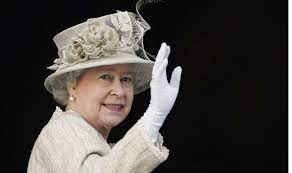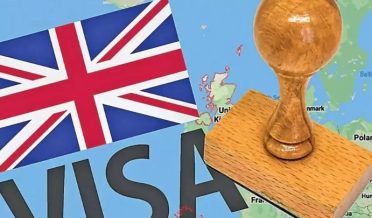Chairman “Al-Mustafa” Abdulrazzaq Sajid has expressed deep sorrow and regret over the death of the Queen Elizabeth. In one of his messages, he said that we as an institution share our grief with King Charles and other relatives of the Queen in this moment of grief. He said, surely these are the time of sorrow for the entire nation, our great queen has lived a spotless life. He said she lived with the conviction that she had been chosen to be Queen, following in the steps of her parents. Most of us grew up with great admiration and filial affection for her, this formidable woman with an untiring sense of duty who was an example to us all. She was our sovereign for 70 years, and with her deep sense of service that emanated from her faith, the Queen brought stability and unity to the whole nation. Abdulrazzaq Sajid has said that Her sense of duty was known and respected by everyone. Just two days before her death, her last public act was to appoint Liz Truss as the country’s new prime minister — the 15th of her long reign that even included Sir Winston Churchill — and she thereby carried out one of her most important sovereign duties right to the very end. He said the Queen will always be with us.
The new government needs policies of public interest!
The newly elected Prime Minister of Great Britain has taken the oath of office. Elizabeth Truss set out a series of proposals during Tory leadership contest, but what can and will she deliver in office? The policy focus of a Truss prime ministership will, inevitably, be largely a work in progress, given she is taking office amid a hugely turbulent economic period. But during a long leadership campaign the new PM has set out a series of proposals and plans for government. Truss’s clear economic priority is to cut taxes, a move she insists will reboot a stalled economy and help people with soaring energy bills. She has promised to reverse the recent increase in national insurance and to cancel a scheduled rise in corporation tax, at a combined cost of about £30bn a year. Truss’s team has also mooted the idea of slashing VAT by 5% or cutting income tax to help household budgets. One option could be to expand a windfall tax on energy firms, but Truss has said she dislikes this. There is also considerable scepticism about a tax cut-based response to the energy costs crisis, which would disproportionately benefit high earners and do nothing for those reliant on pensions or benefits. Truss has not ruled out more direct help over energy bills but has refused to say explicitly what this might be and talked about her distaste for “handouts”. It is a position that is about to be tested against economic reality. While Truss has stressed her commitment to the UK’s existing net zero target, and her team insists she will focus on renewable energy, some on the greener side of the Conservative party are becoming worried about her priorities. One of Truss’s few direct policies on the cost of living would be to suspend green levies on energy bills, which are used to invest in renewable schemes. She opposes onshore wind and describes seeing solar farms on farmland as “one of the most depressing sights” of modern Britain. In contrast, she supports fracking for shale gas and reportedly wants to see a push for new drilling in the North Sea and has backed a major expansion of nuclear power. She has not talked about efforts to reduce energy consumption, such as subsidising insulation for homes. While PM remains committed to existing plans to support the NHS, there is the issue that Truss has promised to reverse the national insurance rise aimed at providing cash firstly to help clear the Covid-exacerbated backlog of NHS procedures, and in the longer term to pay for better social care. Much of the problems with delayed ambulances are because hospital beds are filled with people unable to access social care. Truss will need a coherent plan, and soon. This is another area on which Truss said relatively little during the leadership campaign but could increase in significance as she faces the country, and her own MPs, as prime minister. Levelling up was Boris Johnson’s self-stated defining purpose, and while Truss has said she remains committed to this agenda, it is unclear whether she would back this with significant spending. Truss has said she will level up “in a Conservative way”, seen as a focus more on deregulation and tax cuts. Truss is likely to link any failure to remove people to the continued jurisdiction of the European court of human rights. While removing the UK entirely from its oversight would be complex and tricky, she is likely to push ahead with plans for a so-called UK bill of rights, with fewer protections for asylum seekers and others. Wider foreign policy is likely to be more of the same, given Truss led on this under Johnson, so expect more vehement support for Ukraine, plus occasional gaffes such as her recent refusal to say whether the French president, Emmanuel Macron, a neighbour and close ally, is a “friend or foe”. Truss has made much of her toughness over the Northern Ireland protocol, and her camp has hinted she could trigger article 16, the emergency procedure clause in the post-Brexit deal with the EU, within days of entering No 10.






